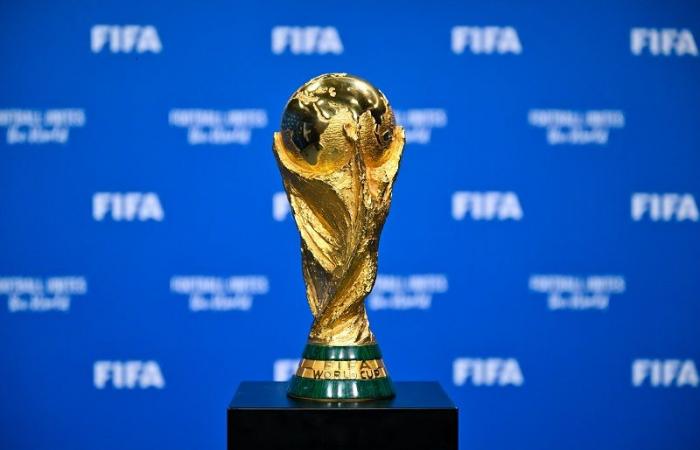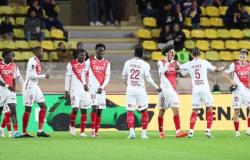JavaScript is disabled! Why you want to do so? Please enable JavaScript in your web browser!
“Hosting the World Cup represents a major economic, social and cultural opportunity for any country seeking to strengthen its international position and achieve lasting benefits,” says the policy paper in its preamble. For Morocco, organizing this event constitutes “a valuable opportunity to open up exceptional perspectives aligned with the orientations and ambitious objectives of the New Development Model”.
Tourist and economic benefits
According to forecasts from the Government Work Observatory (ANOTHER), the 2030 World Cup should attract more than 1.5 million visitorsa number comparable to that recorded by Qatar and Russia during previous editions. These visitors are expected to generate tourism revenues of approximately 2 to 3 billion dollars (19.6 to 29.4 billion DH)including accommodation, dining, shopping and leisure expenses. “Morocco’s ability to attract so many visitors will be crucial to maximize the economic benefits of this event,” underlines the Observatory.
The hotel sector will be particularly in demand, with an occupancy rate estimated between 90% et 100% throughout the duration of the event. As a result, the country is expected to benefit from substantial revenues linked to the services sector.
Infrastructure investments
To host the 2030 World Cup, massive investments in sports and public infrastructure will be necessary. The report indicates that the budget for the construction and modernization of the stadiums will be between 3 and 5 billion dollars (29.4 and 49 billion DH) to enable the upgrade of the country’s sports facilities.
Other public infrastructure, such as airports, highways and local roads, will also benefit from an improvement plan which will require approximately 1.5 billion dollars (14.7 billion DH) investments, creating in the process 50,000 to 80,000 new jobs in construction, tourism and services. “These projects will strengthen Morocco’s competitiveness as a tourist destination and modernize the entire transport network,” the report specifies.
A sustainable economic model for stadiums
Among the challenges mentioned by the Observatory is guaranteeing the profitability of stadiums after the competition. “World Cup host countries often face significant challenges post-event, including making profitable use of stadiums and sports infrastructure,” the report said.
To prevent these installations from becoming “white elephants”, Morocco will have to adopt an innovative economic model ensuring their sustainability. The stadiums could be used for various events, such as regional sporting competitions, cultural festivals and trade fairs, thus “promoting the local economy and creating sustainable jobs”. The development of partnerships with the private sector will be crucial to finance this infrastructure.
This financing represents a major challenge, particularly for a country like Morocco. “In order to prevent future financial pressures, Morocco will have to minimize its dependence on borrowing” and “develop financing partnerships with international institutions and private investors,” recommends the policy paper.
Digitalization and smart services
Digitalization is identified as an essential pillar to guarantee an exceptional experience during the World Cup. Compared to Spain and Portugal, Morocco must “modernize its digital infrastructure” and improve the quality of digital services, especially for international visitors. This includes the development of online platforms making it easier to book tickets and accommodation, as well as multilingual smart applications offering tourism and public infrastructure information.
Quality of services and tourist infrastructure
To attract visitors and provide a high level of comfort, “it will be crucial to work on improving tourist infrastructure”. This includes modernizing hotels, restaurants and transportation, as well as training tourism sector employees to provide quality professional service. In addition, Morocco will need to strengthen its transport networks in order to meet increased demand. The report emphasizes the need to reform the current taxi system, integrating “smart applications and regulated services”, to improve visitor mobility.
Environmental issues and sustainability
The organization of the 2030 World Cup must also meet modern environmental requirements. “Morocco will need to put in place sustainable environmental policies, including the management of natural resources, the reduction of energy and water consumption, and the promotion of renewable energies,” says the document. This includes implementing recycling projects and operating facilities profitably while adhering to strict ecological standards.
Security and integrated mobility strategy
Ensuring the security of the event is another major challenge. A “global security strategy” will be necessary to guarantee the protection of visitors and facilities, while facilitating travel and avoiding congestion at tourist sites. The report also calls for raising awareness among the Moroccan population, who must understand the importance of this event and its positive repercussions for national development “The success of the World Cup will depend on conscious and responsible involvement of citizens,” underlines the. policy paper.
Between $8 and $10 billion in revenue
The document estimates that the direct and indirect economic benefits of the 2030 World Cup in Morocco could reach “between 8 and 10 billion dollars (78.5 and 98.2 billion DH)“, including income from tourism, foreign investment, broadcasting rights and commercial partnerships.
In short, the policy paper of the Observatory of Government Work underlines that the World Cup could become a real engine of transformation for the country, affirming its position on the international scene while generating lasting benefits for the whole of Moroccan society. “The World Cup is not just a fleeting event, but a step towards a more prosperous and stable future,” the report concludes.
Do you have a real estate project in mind? Yakeey & Médias24 help you make it happen!
© Media24. Any reproduction prohibited, in any form whatsoever, without written authorization from the Société des Nouveaux Médias. This content is protected by law and in particular law 88-13 relating to the press and publishing as well as laws 66.19 and 2-00 relating to copyright and related rights.






